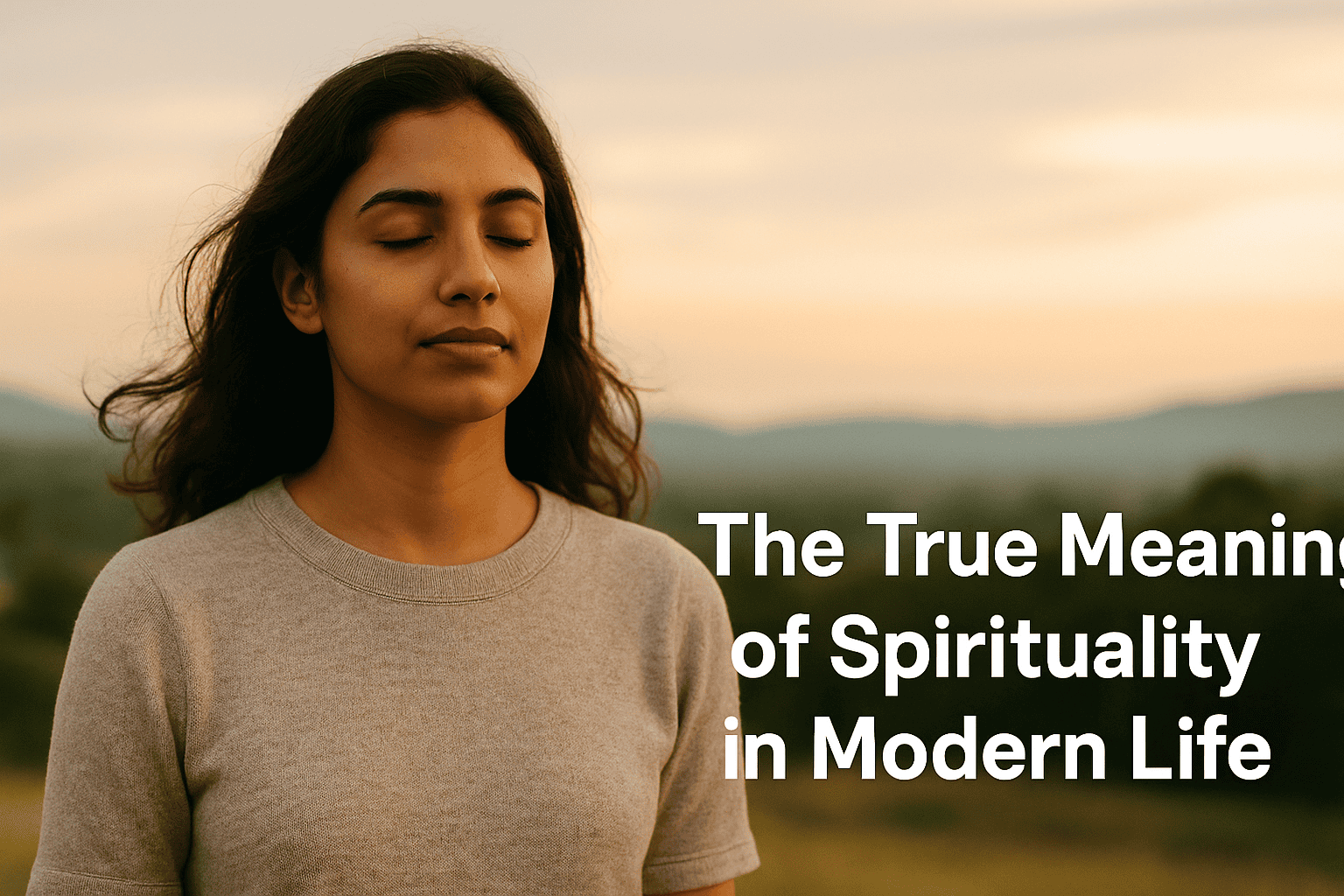PEACE
The True Meaning of Spirituality in Modern Life

In a world that never stops moving, where success is measured in numbers and peace often feels like a luxury, the word "spirituality" has taken on new meaning. For many, spirituality is still deeply tied to religion, rituals, or ancient texts. But in the modern age, its definition has expanded. It has become more personal, more inward-focused, and more about connection than convention.
What is Spirituality?
At its core, spirituality is the journey of seeking a deeper meaning to life. It's the desire to understand who we are beyond our names, roles, and possessions. It's about aligning with a higher consciousness, experiencing inner peace, and living in harmony with the universe.
Spirituality isn't limited to temples, churches, or mosques. It can be found in a walk through nature, in a moment of silence, or in a heartfelt conversation. It’s less about following rules and more about discovering inner truth.
Spirituality vs. Religion
One of the most common misconceptions is that spirituality and religion are the same. While they can be connected, they are not identical.
Religion is a structured belief system with doctrines, rituals, and community practices. Spirituality, on the other hand, is a personal experience. A religious person can be spiritual, but a spiritual person may or may not follow any religion.
In modern life, many are shifting from organized religion to personal spirituality. They seek practices and philosophies that resonate with their own experiences rather than blindly following inherited beliefs.
Why Spirituality Matters Today
Modern life is fast, competitive, and often overwhelming. With the rise of technology, we are more connected digitally but increasingly disconnected from ourselves. Mental health challenges like anxiety, depression, and burnout are at an all-time high.
Spirituality offers a way to cope. It provides:
- Inner calm amid chaos
- Meaning and purpose beyond material success
- Connection to something larger than oneself
- Emotional resilience during tough times
Spirituality doesn’t promise a life free from problems, but it changes how we respond to them. It helps us shift from reacting in fear to responding with awareness.
The Pillars of Modern Spirituality
Here are some key elements that define spirituality in today’s world:
1. Mindfulness and Presence
Mindfulness is the practice of being fully present in the moment. It means eating mindfully, walking mindfully, even breathing mindfully. In an age of distractions, this simple awareness is profoundly spiritual.
2. Self-Inquiry and Reflection
Asking "Who am I?" and "What truly matters?" leads to profound discoveries. Journaling, meditation, and self-reflection are common tools for modern spiritual seekers.
3. Compassion and Service
Spirituality isn't just about inner peace; it’s also about how we treat others. True spiritual growth includes being kind, forgiving, and generous.
4. Gratitude and Acceptance
Acknowledging what we have and accepting what we can't control brings a sense of completeness. Gratitude journaling is a powerful daily practice.
5. Connection with Nature
Many people feel spiritually alive in nature. Forests, rivers, mountains, and stars remind us of our place in the universe.
How to Live Spiritually in Everyday Life
Spirituality isn't a weekend retreat or a one-time meditation session. It’s a lifestyle. Here’s how you can bring it into your daily routine:
- Start your day with silence: Just 5 minutes of breathing or gratitude can set the tone.
- Disconnect to reconnect: Take tech-free breaks to be with your thoughts.
- Practice conscious breathing: A few deep breaths can anchor you in the present.
- Do one act of kindness daily: Smile at someone, help a stranger, or just listen.
- Reflect every night: Ask yourself, "Did I live with awareness today?"
Spirituality and Mental Health
Spiritual practices like meditation, chanting, or prayer are scientifically proven to reduce stress and enhance well-being. They activate the parasympathetic nervous system, lower cortisol levels, and improve emotional balance.
In fact, many therapists now incorporate spiritual tools in counseling, such as mindfulness-based cognitive therapy (MBCT) or yoga for trauma recovery. Spirituality provides meaning, which is essential for mental healing.
Common Myths About Spirituality
- "You have to be religious to be spiritual." Not true. Anyone, of any faith or no faith, can be spiritual.
- "Spirituality is escapism." It’s not about avoiding reality but embracing it with deeper understanding.
- "You must renounce the world to be spiritual." Spirituality is about living in the world with awareness, not escaping from it.
Final Thoughts: A Call to Inner Awakening
Spirituality is not a destination. It’s a journey—a journey inward. In modern life, with all its noise and pressure, spirituality becomes not just a luxury but a necessity. It helps us stay human in a world of machines, compassionate in a world of competition, and conscious in a world of chaos.
To be spiritual today is to live with awareness, love, and purpose. Whether you find it in prayer, in poetry, or in silence, what matters is the connection you build with your own soul.
So pause. Breathe. Reflect. Begin the journey—within.
